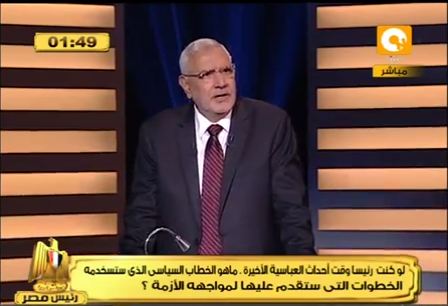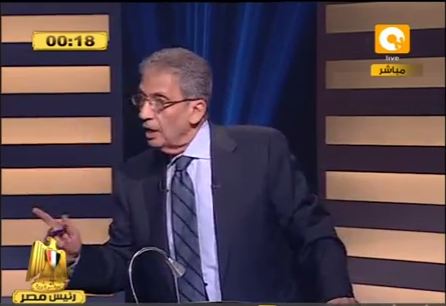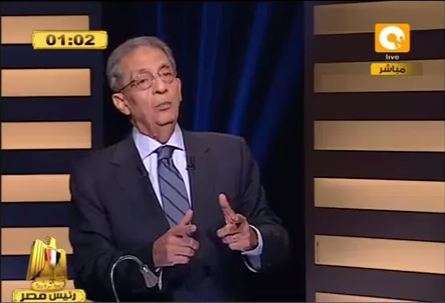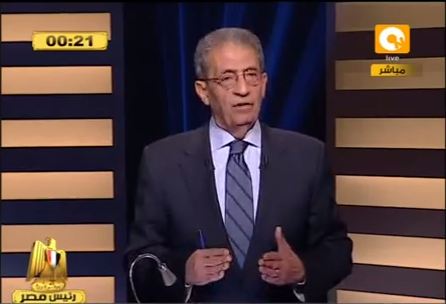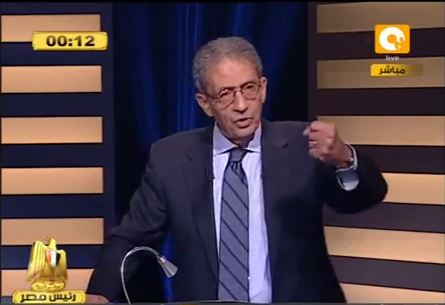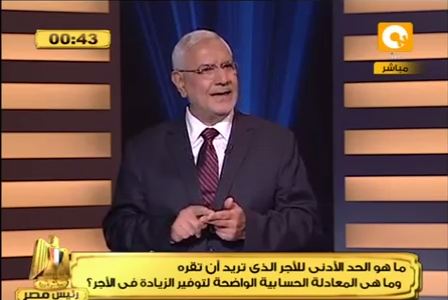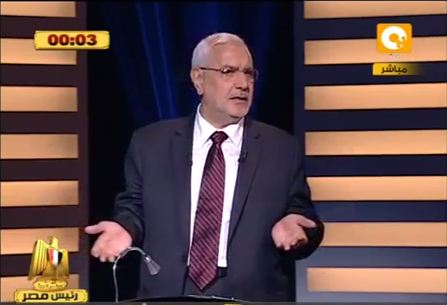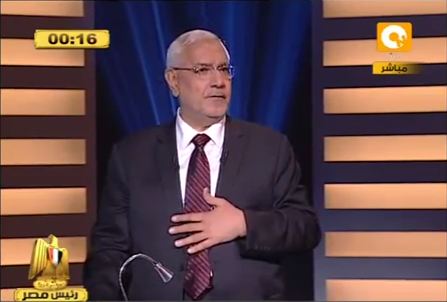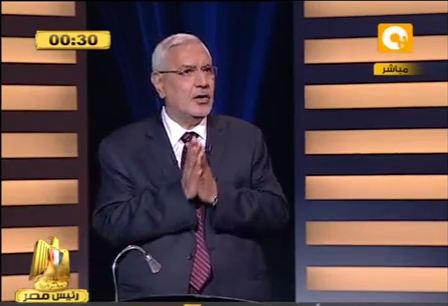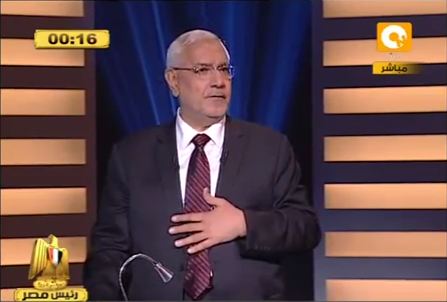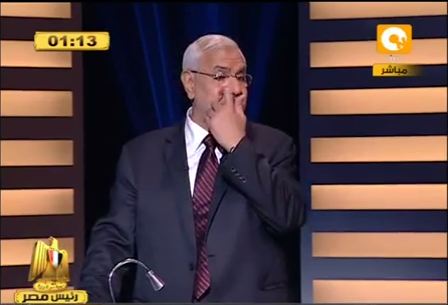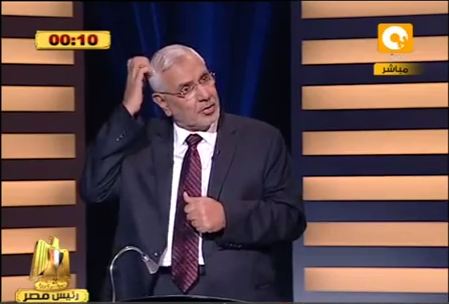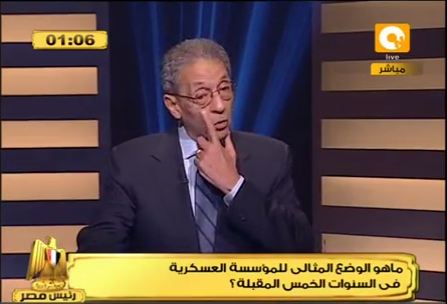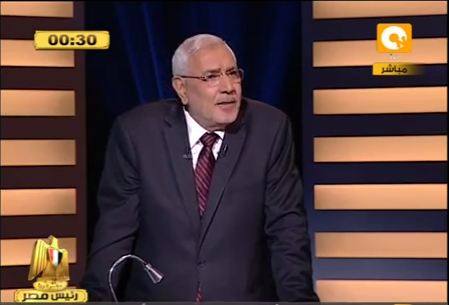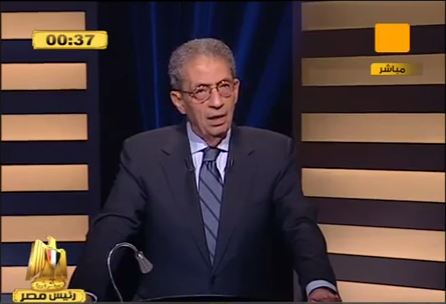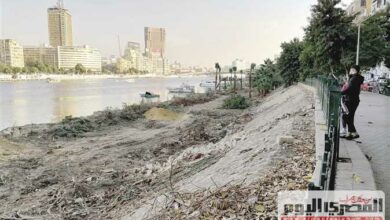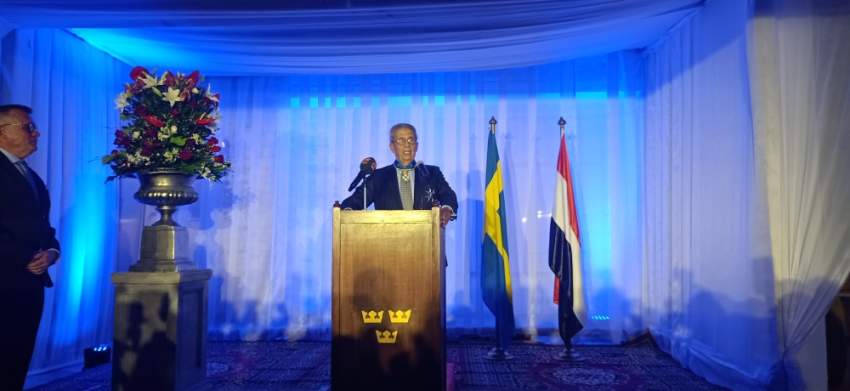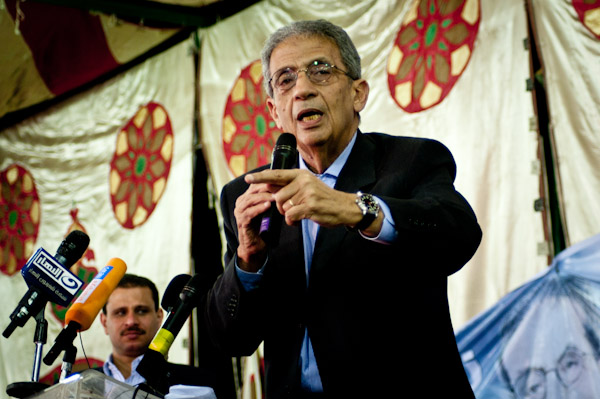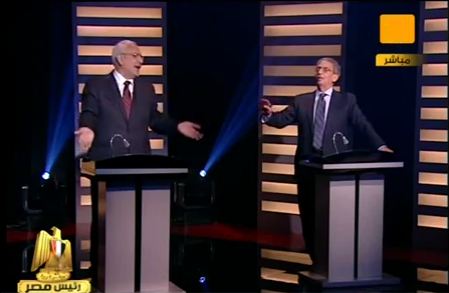
It is common knowledge among psychologists that nonverbal communication, largely composed of what is widely known as body language, plays a major role in message delivery and image projection.
It can be enlightening to take a deeper look at the presentation of a message besides the content of the message itself.
We have undertaken such an analysis of nonverbal behavioral projections by the two Egyptian presidential candidates Amr Moussa and Abdel Moneim Abouel Fotouh based on our observation of the 10 May televised presidential debate.
Given the limits of this analysis and time, we were not be able to dissect the footage millisecond by millisecond, so measuring the exact frequency and duration of gestures has been disregarded.
And unlike most other presidential debates, during the Egyptian debate both candidates were not facing one another and therefore the candidates bodily reactions to each other, known as 'mirroring,' could not be significantly assessed.
The analysis presented here is unbiased, not being based on any personal view of either candidate. It has been based on empirical psychological interpretation of nonverbal communication and therefore should not be seen as a fact finding paper, but rather one that describes what each candidate may have willingly or unwillingly projected.
Appearances and outfits:
Despite the fact that both candidates wore very similar suits, a significant difference is obvious to the observer: at the start of the debate, Abouel Fottouh’s suit was unbuttoned, giving him a rather casual appearance, and Moussa presented himself in a buttoned-up suit, projecting a more reserved image.
Head tilt:
It is noted that throughout the entire debate Moussa’s head was tilted high while Abouel Fottouh’s was forward facing. A high head tilt tends to project an image of superiority and often arrogance; while a forward facing head tilt tends to project an image of positivity and reactivity.
Facial expressions:
Concerning facial expressions no significant differences were observed between both candidates.
Hand gestures:
– Moussa:
As a general remark, one can notice that Moussa made use of excessive hand gestures at the very beginning of the debate, which seemed surprising.
Moussa is observed as the 'indexman.' His frequent use of his index fingers tends to be either to emphasize a point, point at his opponent or at himself.
In all cases, using the index finger generally means the subject is trying to communicate a threat or accusation and is commonly used to place the opponent at a lower rank (since adults tend to point fingers at children). AM also used the chef d’orchestre tool, his pen.
This is a gesture commonly used by politicians in which the pen acts not only as a symbolic weapon, but also as an extension of the index finger, a way of projecting an authoritarian presence.
The ‘revolver’ gesture was also used by the 'indexman' in which he pointed using both his index and middle finger – a gesture commonly used to seek credibility.
Moussa frequently used his open palms pointing downwards, projecting a sense of dominance and authority as well as one of disagreement. The ‘hand chop’ gesture was also commonly used by AM to emphasize his ‘point finale.'
Moussa also wagged his finger sideways frequently to emphasize warning and refusal. His frequently clenched fist can be seen as a projection of aggression and determination.
– Abouel Fotouh:
When compared to Moussa, Abouel Fottouh is not an 'index man' as he uses his index finger significantly less. Interestingly, we wish to call Abouel Fottouh the 'palm man' as most of his hand gestures are performed using an open palm–even when counting.
Unlike Moussa, the 'palm man' had his palms open in an upward position, a gesture which will be later explained. Similar to Moussa, Abouel Fottouh used both the'downward palms' gesture and the 'hand chop’ to project authority and firmness. Very frequently did Abouel Fottouh point his palms upwards, a gesture commonly used to convey innocence, openness and sincerity.
Symbolically speaking, it is a gesture used to say “I am harmless and I have no weapons”. A-propos sincerity, Abouel Fottouh made sure to use two significant gestures: 'the prayer' and the 'hand over heart' gestures. Placing one’s hand over the left side of the chest is a gesture very commonly used when a person seeks to be believed regardless of the validity of the truth. Here, the person usually feels the need to emphasize sincerity and honesty.
The 'prayer' gesture is which both palms are stuck together upwards may indicate that the person is describing a wish or, on a more political front, is asking an empathizing audience for assistance.
Pinocchio Detectors:
– Abouel Fottouh:
AF displays three very distinct gestures that should not go without notice:
– Nose touching while speaking
– Nose touching prior to speaking
– Head scratching while speaking
According to scientific research, nose touching while speaking is an indication of lying and exaggeration as physically the nose tends to redden when the person is not telling the truth making nose touching an automatic involuntary reaction aimed at hiding such physiological change.
Nose touching before speaking, tends to be a contemplative strategy setting action in which the person gives themselves a chance to come up with an answer usually translating into a lie.
Head scratching, considered as a ‘diversion’ strategy action, has a psychological interpretation very similar to that of nose touching.
-Moussa:
Moussa similarly exhibits a form of face touching once during the debate, placing his index finger under his eye, which is also indicative of a lack of sincerity.
Posture:
Moussa showed a more impulsive projection though his frequent movement while Abouel Fottouh remained stable during the whole debate.
Both had a firm podium grip while Moussa tended to lean forward more often than Abouel Fottouh projecting a more dominating tone.
In general, Abouel Fottouh seemed to have aimed at projecting an image of a candidate defending the oppressed people while Moussa seemed to have aimed at projecting an image of a candidate leading a nation.
Dalia Danish is a Cairo and Paris based practicing psychologist and neuroscientist, graduate of the University of Cambridge and member of the British Psychological Society.
Ibrahim Gamal El Din is a political science undergraduate at the American University in Cairo, a blogger and a social activist



